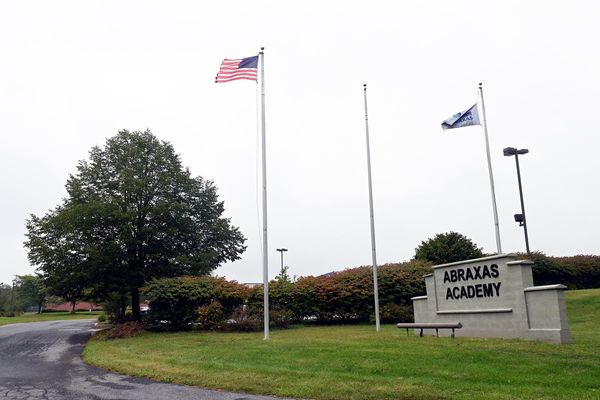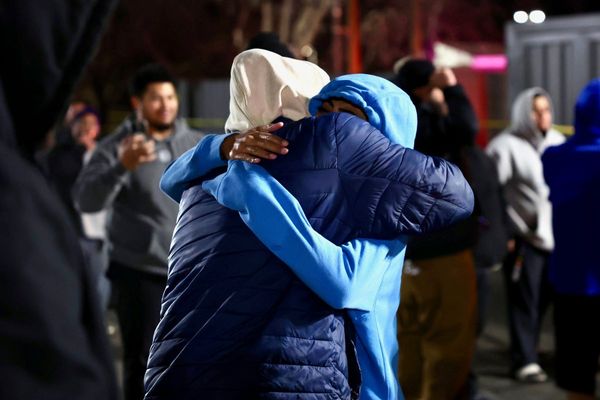
On the night Leigh Watson and Ashish Madan lost their son Ravi, they made a pact - they were going to fight for the ACT's mental health system to be overhauled.
Ravi, 23, died by suicide in April 2021. This was 18 months after his first attempt.
During the final years of his life, Ms Watson and Mr Madan tried desperately to help their son but were met with so many barriers along the way in a system they say failed Ravi "abysmally".
"We count the first two-and-a-half years, that was a desperate time from his first suicide attempt," Ms Watson said.
"The very very night that he died we just said, 'No more'."
'Ravi worker'
Ravi died on Thursday, August 8, 2021 and by the following Monday, Ms Watson and Mr Madan had delivered a nine-page report to the ACT coroner.
This report outlined desperate attempts from Ms Watson and Mr Madan for Ravi to receive treatment. They were completely left out of the process, despite the fact Ravi lived with them.
What also formed during those days were some recommendations, which they have both urged the ACT government to adopt.
The first recommendation is for a dedicated case worker who is assigned to a young person, aged up to 25, who has been hospitalised due to a suicide attempt.
This worker would connect with the young person and would help them with not only accessing medical and community support but also with things like housing, education and income support.
While it has been called a case worker for the sake of the recommendation, Ms Watson refers to it as a "Ravi worker".
"Case worker - I don't really like that term, the name we have got is a 'Ravi worker'," she said.
"They become attached to this person. It's not just sending them text messages or ringing them from a private number, or it's not just giving that person a brochure and saying you could get a case worker for a couple of months.
"That person ... if they can't get them on the phone, they would turn up and knock on the door and say, 'Hey Ravi, it's 10am, let's go out and get coffee'."
The second recommendation is the family would be provided with a peer support worker that would help the family ensure they are well-placed to support their young family member.
These two recommendations would work hand-in-hand and would come together in the form of a case management team. This team would include the "Ravi worker", a counsellor, a psychiatrist, the family, the peer support worker and the young person.

The team could meet regularly or just once but would work together to coordinate a treatment plan for the young person.
"One thing that happens with all of us is we tell different things to different people, depending on what they want us to believe and certainly if you're a young person and you have a mental illness, you're going to do that," Ms Watson said.
"In this space we would be allowed to give our information as well. So there would be a shared understanding."
'They wouldn't talk to us'
Ms Watson and Mr Madan say they were left in the dark about Ravi's treatment.
They say practitioners were fearful of sharing any information with them, even if they were just calling to see how Ravi was going.
Mr Madan said when Ravi was in the mental health unit at Canberra Hospital due to suicidal thoughts, he struggled to even find out whether his son was at the unit.
"When he was in the mental health system at the hospital they wouldn't talk to us. We asked, 'Is he there'? And they said, 'We can't tell you that'," Mr Madan said.
Mr Madan said he was eventually told Ravi would be discharged later that day. At the time, Ravi was living at home and was financially supported by his parents. They strongly advised against him being discharged.
When Ravi arrived home it was clear he was unwell and Ms Watson and Mr Madan made sure he was not left alone in the evenings.
ACT Coronial Counselling Service senior clinician Kerrie Gallagher, of Relationships Australia, said in her experience, working in both Australia and Ireland, certain confidentiality clauses had proved to be barriers as it meant families were often left in the dark.
She said there needed to be balance to enable families to be part of the conversation and broader treatment plan.
"When young people are suffering many families aren't aware. Many people aren't aware because they aren't a part of the process," Ms Gallagher said.
"There are opportunities to make our systems more inclusive of the family because when the young person is suffering the family is usually suffering also.
"We can put more safety and more security around that young person with pulling more people around them.
"If they are in that suicidal space and if that family is aware of that they can do something then they can act or they can be a part of that process for that young person."
Ms Gallagher is undertaking research, in partnership with the Australian National University, into the experiences of those who have had a family member die by suicide in the ACT.
The aim of the research is to identify barriers and facilitators in access to high-quality clinical and psychosocial supports for people who later died by suicide.
There have been 15 families interviewed as part of the research.
The findings will be used to provide guidance on how to improve mental health care services in the territory, alongside community and education programs and their processes around suicide risk.
Ms Gallagher said she believed people with experience should play a role in creating policies and services.
"I do believe that our systems need to be driven by the people that use them and the people that know what we need," she said.
"It's incredibly important that those voices are heard and that's why this research exists because I felt so strongly and the families felt so strongly that they did not want other people suffering in the way that they have."

ACT Minister for Mental Health Emma Davidson said work was under way with carers and support organisations to explore ways for carers to be part of the conversations. She said this was a balancing act.
"It's always a tricky thing to be able to balance the human rights of the person who is receiving treatment about who they consent to knowing what's happening with their treatment and also, at the same time, recognising that carers play a really important role in supporting someone who's going through treatment and helping them to stay in recovery," she said.
'Always going to be more we can do'
A parliamentary inquiry into youth mental health in the ACT, handed down in 2020, recommended every patient under 25 be given a care plan and an immediate case manager when they were discharged from a mental health unit and this should be communicated to parents.
In its response, the ACT government said there was value in the care plan but it could not be provided to carers for those aged 18 to 25 without the consent of the young person.
The government also said it was "not practical or clinically necessary" to have a case manager for everyone under 25 who is discharged.
Ms Watson and Mr Madan were dismayed by this response, saying a case management plan was essential, especially in the case of an attempted suicide.
A recent report from the ACT government, in partnership with Canberra community sector organisations, said more work was needed to understand the needs of 18- to 25-year-olds.
The Understanding the Missing Middle report was unable to fully determine the gaps in mental health care for young adults aged 18 to 25 as there was "minimal engagement" with services that provide support to this group.
"This is an important limitation, as the barriers for young people aged 18 to 25 could not be adequately captured," the report said.
Ms Davidson said further work would be done for this age group but said there was a focus on a younger cohort at the moment in the hope this early intervention would have improved outcomes.
"We know that of the young people who do develop mental health conditions in about half of them it emerges by the time they have turned 18," she said.
"If we can solve some of those problems in a young age group and as soon as the problem emerges that will make a big difference for those 18- to 25-year-olds as well.
"There's always going to be more that we can do and so we're always looking ahead to what is the next thing we need to work on but right at the moment getting more services rolled out to children and young people in that under 18 group is going to help us a lot I think."'
Ms Davidson said the government was focused on increasing the peer mental health workforce, saying she could see some value in having a case worker in some cases, especially when someone was transitioning between services.
"I think we're getting much better at understanding the value of people who work, not necessarily in a clinical space but in that space where you are supporting and connecting people to maintain their recovery," she said.
"Those transition points where sometimes things go wrong or don't work as well as they were intended to and I can understand how caseworkers and support workers can help with those transitions."
- Support is available for those who may be distressed. Phone Lifeline 13 11 14; Mensline 1300 789 978; Kids Helpline 1800 551 800; beyondblue 1300 224 636; 1800-RESPECT 1800 737 732.
We've made it a whole lot easier for you to have your say. Our new comment platform requires only one log-in to access articles and to join the discussion on The Canberra Times website. Find out how to register so you can enjoy civil, friendly and engaging discussions. See our moderation policy here.







